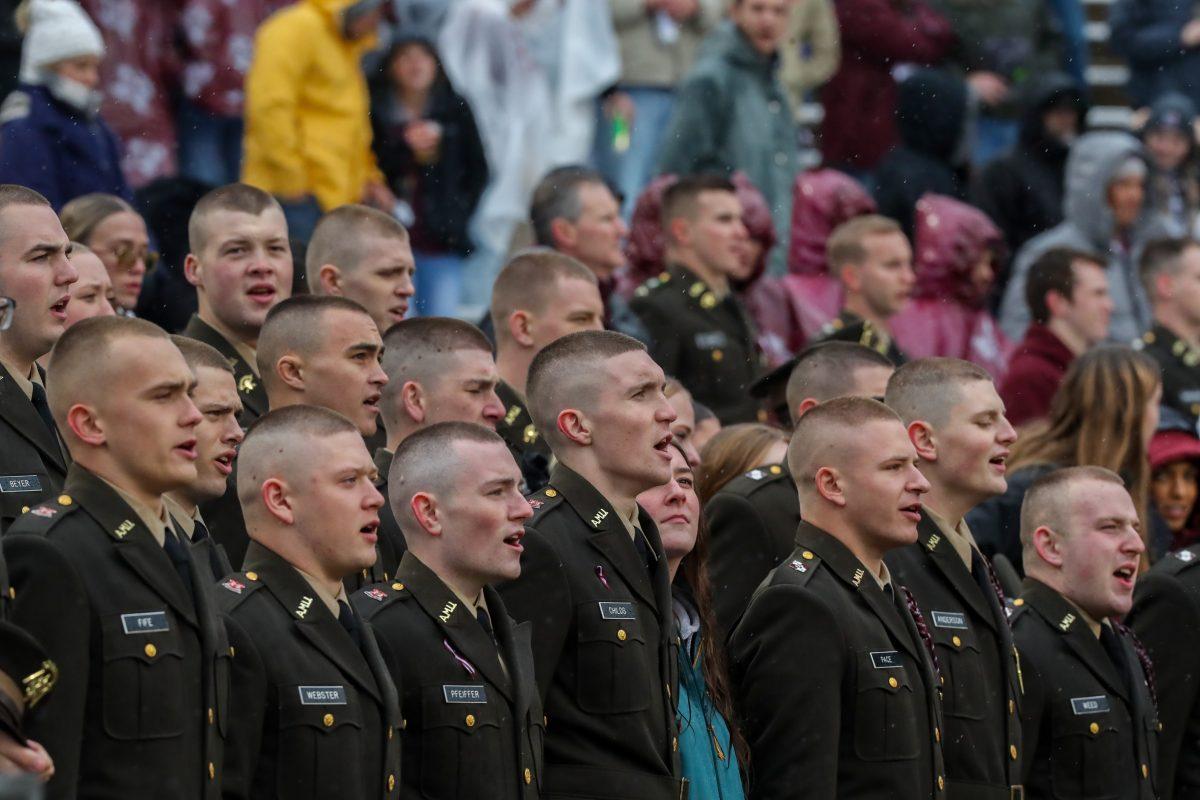Texas A&M’s Student Government Association, or SGA, is considering advocating for providing members of the Corps of Cadets priority registration for classes. Currently, legislation is in the works in the Academic Affairs Committee.
“I think this initiative will make a difference and let students know that their voices really matter, and if there are concerns, student government can do something about it,” SGA’s Academic Affairs Committee Chair Angelina Baltazar said.
Baltazar said providing members of the Corps priority registration would help members graduate on time.
“This project stemmed with my committee, as we realized that the Corps have a lot of extra classes required to be in the Corps,” Baltazar said. “Most cases, they graduate later because they move classes around and delay things so most end up graduating after four years. We want them to accommodate their classes for appropriate times and graduate at a decent time.”
Baltazar said the Academic Affairs Committee sent out a survey to Corps members to see their thoughts and evaluate how registration has affected them and will meet with A&M’s Registrar Office.
“We also let them know priority registration won’t solve everything, but after evaluating the data as a committee, we thought it was a good initiative to support,” Baltazar said “It will help a lot of people, and we feel our data is strong enough as is.”
This project will make a difference in showing Corps students are represented and improving A&M’s graduation statistics, Baltazar said.
“This will improve our retention and graduation rates as well as relieving financial burden, since the Corps only financially supports students for four years,” Baltazar said.
Accounting junior John Miles said he opposes providing priority class registration to members of the Corps.
“I oppose it because so many people already have priority registration, and it would be overwhelming,” Miles said. “I understand the reasoning and rationale, but there are other people that should have it more. It would be pointless if more people kept getting priority registration.”
Miles said class registration would be more competitive among students.
“I’m a junior studying accounting so it doesn’t directly impact me, but you’re kind of screwing other people and causing sections to fill up fast, especially for engineering students,” Miles said. “There are a lot of engineering students. My friend is still in general engineering and is going to have a much harder time registering due to how fast the sections will fill up.”
Freshmen and sophomore Corps members could take advantage of this idea, Miles said.
“Even though there are downsides to this, I also think this idea could help freshmen and sophomores get away from upperclassmen to an extent because they can select a schedule that they want,” Miles said. “I can see them using it to try to waive Corps activities. It would be interesting to see which sides would take advantage of this.”
Miles said priority registration is a privilege that should not be easily granted to so many students.
“Instead of trying to get more people in priority registration, make it a bit harder to get priority registration,” Miles said. “So many people getting it devalues the privilege of priority registration.”
Urban planning senior William Mohamad said there should be research that supports the need for this.
“I haven’t seen any research that would say they would need it,” Mohamad said. “If I was introduced to a new piece of information that shows a large percentage of Corps members being negatively impacted, I’d understand the need to grant them that. I don’t think the status of being a Corps member or non-Corps member should impact registration.”
Mohamad said there are larger issues that should be fixed to truly solve class registration issues.
“It’s already hard to compete for the best professors,” Mohamad said. “I think putting Band-Aids on different groups doesn’t do anything for the competition that is class registration. Maybe there’s an issue as a whole that needs to be addressed — like having more classes.”










